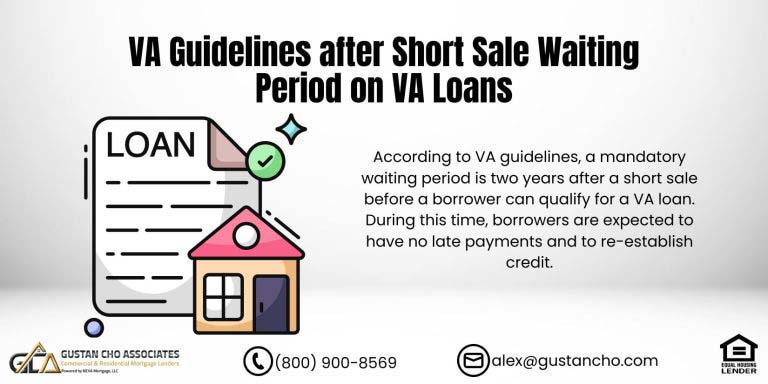Understanding HUD Credit Score Guidelines in 2024
Are you dreaming of buying your first home but worried about your credit score? Or you’re considering refinancing but unsure if your credit history will hold you back. The Department of Housing and Urban Development, or HUD, has very flexible guidelines for FHA loans, which makes it easier to become a homeowner than you may realize.
In this guide, we’ll walk you through everything you need to know about HUD credit score guidelines for 2024. Whether you’re dealing with past credit issues, have a low credit score, or are simply trying to understand your options, this article is here to help you confidently navigate the process.
Why FHA Loans Are a Game-Changer for Homebuyers
FHA loans are pretty awesome if you’re hoping to buy a home but find the whole process a bit daunting. These loans are helpful because they’re not as strict as other mortgage types. Let’s break it down into simpler chunks:
Lower Credit Score Requirements
Unlike those tough-to-meet standards for regular loans, FHA loans are cool with lower credit scores. So, if you’re worried because your score isn’t top-notch, like around 500 or something, FHA loans got your back.
More Forgiving of Past Credit Issues
So, you’ve had a few hiccups with credit in the past? A bankruptcy or some bills went into collections? Well, thanks to HUD credit score guidelines, FHA loans are more about giving you a second chance than holding those issues against you.
Lower Down Payments
Here’s a big win – you don’t need a mountain of cash upfront. If your credit score is 580 or above, you’ll only have to pay 3.5% of the home’s price down. If your score ranges from 500 to 579, you must put down 10%, which is still quite reasonable.
Flexible Debt-to-Income Ratios
Got some debt? Who doesn’t! FHA loans consider your income and debt, but they are more understanding than other loans.
So, if homeownership feels just out of reach, and you’re thinking about how to make it work, digging into FHA loans might be the game plan you need. The whole HUD credit score guidelines thing means they’re designed to help more people get into homes without the super strict rules that sometimes make buying a house impossible.
Wondering How Your Credit Score Affects FHA Loan Eligibility? Let’s Review HUD’s Guidelines!
Contact us today to find out how your credit score impacts your eligibility and get on the path to homeownership.
What Are the HUD Credit Score Guidelines?
Let’s break down the HUD credit score guidelines for 2024:
Minimum Credit Score for FHA Loans:
-
- 580 and Above: You might qualify for an FHA loan with a 3.5% down payment. This is a common way for FHA borrowers to get a loan.
- 500 to 579: You can still meet the requirements but must pay at least 10% upfront. This opportunity is for individuals with a history of credit issues willing to make a larger financial commitment.
What If My Credit Score Is Below 500?
- While FHA loans are flexible, a credit score below 500 is generally not eligible. However, improving your credit score to 500 or higher can open the door to these loan options.
Why Lender Overlays Matter
Even if you meet the basic HUD credit score guidelines, the lender you’re working with might have additional requirements known as “lender overlays.” These are extra rules set by individual lenders, and they can vary widely.
Common Lender Overlays:
- Higher Credit Score Minimums: Some lenders may require a 620 or even 640 credit score despite the FHA’s lower threshold.
- Additional Credit Tradelines: Lenders might ask for three or more credit accounts that have been active for 12-24 months.
- Verification of Rent: Even if FHA guidelines don’t require it, some lenders might ask for proof that you’ve paid rent on time for the past year.
- Reserves: Some lenders require that you have several months’ worth of mortgage payments in reserve, especially if your credit score is below 620.
At Gustan Cho Associates, we pride ourselves on having no lender overlays. We stick strictly to HUD’s guidelines, which means more flexibility for you as a borrower.
The Role of Automated Underwriting Systems (AUS)
An essential part of qualifying for an FHA loan is getting an “Approve/Eligible” decision from an Automated Underwriting System (AUS). The AUS evaluates your entire financial picture, not just your credit score. Here’s what the AUS looks for:
- Timely Payments: Have you been paying your bills on time over the past 12 months? This is crucial for getting approved.
- Credit History After Bankruptcy or Foreclosure: While one or two late payments after a bankruptcy or foreclosure might not disqualify you, the AUS prefers a clean record after such events.
- Debt-to-Income Ratio: The percentage of your income goes toward paying debts. FHA loans allow higher ratios, especially if your credit score exceeds 620.
If your credit history has some bumps, don’t worry. The key is to show recent positive payment behavior. Thanks to the AUS, many borrowers who thought they wouldn’t qualify have successfully secured FHA loans.
Debt-to-Income Ratio (DTI) Requirements for FHA Loans
Your debt-to-income ratio, or DTI, is super important when trying to get an FHA loan. Consider it a measure of whether you can comfortably afford a mortgage. The Department of Housing and Urban Development, or HUD, sets certain rules for your DTI based on your credit score. Let’s break it down with simpler terms, focusing on “HUD credit score guidelines”:
Credit Scores 580 and Above
HUD is flexible if your credit score is 580 or higher. They allow your DTI up to 46.9% for your housing costs (such as mortgage, insurance, and taxes) and up to 56.9% for all combined debts (including housing costs, car payments, or credit cards). With a higher credit score, you could borrow more money for your house since HUD allows a higher DTI.
Credit Scores 500 to 579
HUD’s requirements are stricter if your credit score falls between 500 and 579. They limit your debt-to-income ratio (DTI) to 43%. It’s challenging but still possible and better than what you might get with other types of loans.
So, in simple terms, HUD credit score guidelines show that the higher your credit score, the more leeway you get with your debt-to-income ratio when applying for an FHA loan. Remember, this can significantly impact the loan amount you qualify for.
How 2024 Updates Impact FHA Loans
As of 2024, there are a few updates you should be aware of when considering an FHA loan:
- Increased Loan Limits: HUD has raised the maximum amount of FHA loans in many areas, reflecting rising home prices. This means you might be able to borrow more than you could in previous years.
- Streamlined Refinancing: For those looking to refinance, the FHA Streamline Refinance program remains a strong option, with simplified credit and income documentation requirements.
- Enhanced Credit Score Models: Lenders may increasingly use newer credit score models that consider factors like rent and utility payments, which can benefit borrowers with limited credit histories.
Overcoming Challenges with Low Credit Scores
If your credit score is under 620, you might face additional challenges, but it’s not impossible to get an FHA loan. Here are some strategies:
- Focus on Debt Repayment: Paying down existing debts can improve your DTI ratio, making you a more attractive borrower.
- Avoid New Credit: Adding to your debt or starting new credit accounts can reduce your credit score and make it more difficult to get a loan approved.
- Consider Non-Traditional Credit: If you don’t have much credit history, some lenders may consider non-traditional credit sources, like utility bills or rent payments, as evidence of your ability to repay a loan.
Ready to Qualify for an FHA Loan? Let’s See How Your Credit Score Meets HUD’s Guidelines!
Reach out now to learn how HUD’s credit score guidelines can help you get approved for an FHA loan.
How to Boost Your Credit Score Quickly
Looking to improve your credit score quickly, especially following HUD guidelines? Here’s the simple rundown:
- Check Your Credit Report: Check your Equifax, Experian, and TransUnion credit reports. Look for any errors or outdated information. It’s like finding and fixing mistakes in a game to move to the next level.
- Pay Down Balances: Do you have heavy balances on your credit cards? Try to lighten them to under 30% of your credit limits. It’s like cleaning up your room to look nice and tidy when someone checks it out. This cleanup can make your score jump up quicker than you’d think.
- Avoid Late Payments: Always pay your bills promptly. Think of it as avoiding penalties in a game. Skipping or delaying even one payment can hit your credit score hard, like losing points in your favorite game.
- Limit Credit Inquiries: Imagine that every time you apply for new credit, it’s take a tiny hit in your score. This is because it triggers a hard inquiry. So, if you’re eyeing a good deal on a mortgage or any big loan, lay low on applying for new credit for a while.
Considering these HUD credit score guidelines and applying these tips can really set you up for a win. It’s all about smartly playing the credit score game and keeping your financial rep looking sharp.
How to Get Started with an FHA Loan
Starting an FHA loan may seem daunting, but it’s just a matter of taking it step by step. Here’s a simplified breakdown:
- Assess Your Financial Situation: It’s all about knowing your numbers. What does your credit score look like? How about your debt compared to your income? And remember to check how much you’ve saved up. Understanding these pieces helps you decide if this loan fits you right. And yes, you’ll hear a lot about HUD credit score guidelines. That’s just a fancy way of saying the credit score rules set by the Housing and Urban Development folks. Make sure your score fits within those guidelines for a better shot at approval.
- Choose the Right Lender: Some lenders make it tougher than it needs to be. You’re looking for ones that stick to the basics, like Gustan Cho Associates, who make sure you only need to meet the minimum requirements set by HUD, no extra fluff.
- Get Pre-Approved: This is like getting a heads-up on how much you can borrow before you start house hunting. It makes life easier because you know your budget and shows sellers you’re serious and ready to buy.
- Find a Realtor Who Knows the Ropes: Not all houses are up to FHA snuff, so you want a realtor who’s been around the FHA block a few times. They’ll know which houses check the right boxes, so you save time on properties that don’t meet HUD’s standards.
By breaking these steps down, the journey to getting an FHA loan feels less intimidating and more doable. Plus, it keeps things in everyday language, making navigating the process easier.
Final Thoughts: Make 2024 Your Year to Buy or Refinance
Whether buying your first home or refinancing, understanding HUD’s credit score guidelines is the first step in your journey. FHA loans offer a path to homeownership even if your credit history could be better. To increase your chances of approval, work with a lender that follows HUD’s guidelines without lender overlays.
At Gustan Cho Associates, we specialize in helping borrowers like you achieve their homeownership dreams. Feel free to contact us any day of the week, including weekends and holidays. You can call us at 800-900-8569 or text us for a quicker response. Let’s work together to make 2024 the year you purchase or refinance your home.
FAQs About HUD Credit Score Guidelines On FHA Home Loans
- 1. Can I get an FHA loan if I have a bankruptcy or foreclosure in the past? Yes, you can. HUD requires a waiting period after a bankruptcy (2 years for Chapter 7, 1 year for Chapter 13 with court approval) or foreclosure (3 years). However, you must show that you’ve re-established good credit since then.
- 2. What is the minimum credit score for a cash-out refinance with an FHA loan? The minimum credit score for a cash-out refinance is typically 620, though some lenders may allow scores as low as 600.
- 3. Are there any specific credit guidelines for first-time homebuyers? First-time homebuyers face the same credit score guidelines as other FHA borrowers. However, additional benefits include lower down payment options and sometimes assistance programs.
- 4. What happens if my credit score drops after I get pre-approved for an FHA loan? If your credit score drops, it could affect your final approval. Maintaining your credit score during the mortgage process is crucial to avoiding new debt and paying all bills on time.
- 5. Can I get an FHA loan with collections on my credit report? Yes, FHA guidelines do not require you to pay off all collections to qualify. However, large non-medical collections, especially if they total more than $1,000, might need to be addressed.
- 6. How do medical collections impact my FHA loan application? FHA guidelines are more lenient regarding medical collections. Unlike non-medical collections, medical debts are not required to be paid off to qualify for an FHA loan. However, large medical debt could still impact your debt-to-income ratio, so discussing this with your lender is important.
- 7. Can I qualify for an FHA loan if I’ve recently changed jobs? Yes, you can qualify, but lenders typically want to see at least two years of stable employment. This may not pose an issue if you’ve recently changed jobs but stayed within the same industry. You can be fine. However, if you’ve switched industries or roles, lenders may require additional documentation to ensure your income is stable.
- 8. How does a co-signer affect my FHA loan application? If you have a low credit score or a high debt-to-income ratio, having a co-signer can increase your chances of getting an FHA loan. Both of you are responsible for the mortgage payments; missed payments will affect both credit scores.
- 9. What are the FHA loan property standards, and how do they affect my home purchase? FHA loans have specific property standards to ensure the home is safe, sound, and secure. The property must pass an FHA appraisal, which includes an inspection of the home’s condition. Issues like significant structural damage, leaky roofs, or faulty plumbing could cause the property to fail the appraisal, requiring repairs before the loan can be approved.
- 10. Can I use gift funds to pay my down payment on an FHA loan? According to FHA rules, you can use gift money for the down payment. The gift needs to be properly documented, including a letter stating that it is a gift and not a loan.
If you have any questions about HUD Credit Score Guidelines, please contact us at 800-900-8569. Text us for a faster response. Or email us at alex@gustancho.com. The team at Gustan Cho Associates is available 7 days a week, on evenings, weekends, and holidays.
This blog about HUD Credit Score Guidelines On FHA Home Loans was updated on August 30th, 2024.
Understanding HUD Credit Score Guidelines for FHA Loans Is Key to Your Mortgage Approval!
Contact us now to learn how to meet HUD’s credit score guidelines and increase your chances of qualifying for an FHA loan.










